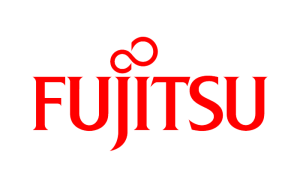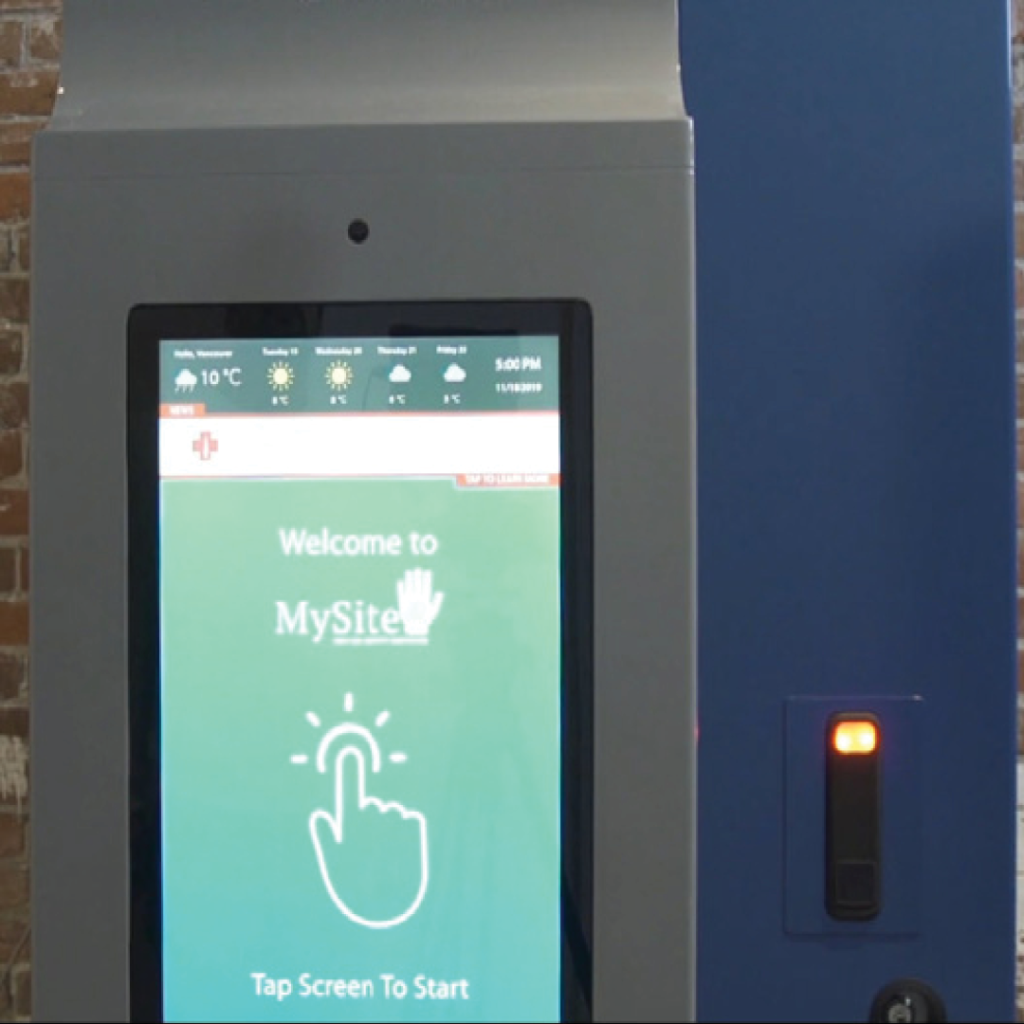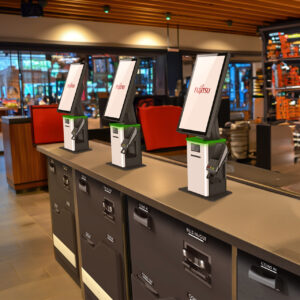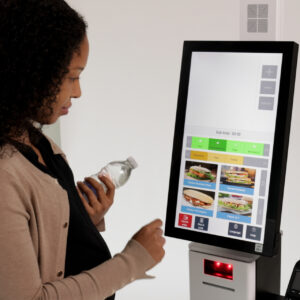The MySafe Project vending machine with palm vein biometric authentication has been deployed in Vancouver’s Downtown Eastside area to help fight the city’s overdose crisis.
In Vancouver, British Columbia, the supply of illicit street drugs has become poisoned with potent synthetic opioid drugs. Overdoses have killed 5,000 people in British Columbia since 2015. In 2017, more than 300 overdose deaths occurred in Downtown Eastside, the epicenter of Vancouver’s opioid crisis. These complex social issues inspired Dr. Mark Tyndall’s plan to offer safe opioids to people with addictions in Downtown Eastside.
Tyndall, a professor at University of British Columbia’s School of Population and Public Health, and the former director of the British Columbia Centre for Disease Control, had an idea to offer prescribed doses of heroin-alternative hydromorphone to addicts through vending machines. However, he wasn’t sure how to do it.
That is until he got a call from Dispension Industries President and Founder Corey Yantha, who had caught wind of Tyndall’s idea. Dispension Industries was already working on vending machines that would distribute legal cannabis, so they used that knowledge to help Tyndall create the MySafe Project, the world’s first biometric opioid vending machine.
The solution is now being piloted in Vancouver using Dispension’s Verified Identity Dispenser (VID) system. The VID features Fujitsu’s PalmSecure biometric authentication system and proprietary integration software developed in partnership with ePortID.
The VID provides hydromorphone pills to registered users who are at the highest risk of overdose in the Downtown Eastside.
Dispension Industries Verified Identity Dispenser (VID) System
The VID is a secure, fully integrated retail platform for safe distribution of regulated products. Biometric authentication enables accurate verification of users’ identity before providing them access to regulated products stored safely inside. The modular design allows for deployment in locations with limited space. With industry-leading software, biometrics and hardware, Dispension’s VID technology provides a frictionless experience for users.
“The VID is comparable to an ATM, only it dispenses regulated products instead of cash. It uses biometric technology which allows it to verify the identity of a registered user with unmatched precision,” Yantha said.
Due to the nature of products being stored in its machines, security and accuracy were top priorities for Dispension when choosing a biometric authentication technology. That is why the company decided on Fujitsu PalmSecure, the most secure, accurate, and reliable identity authentication method for serving all industries.
Fujitsu PalmSecure Biometric Authentication
Fujitsu’s PalmSecure biometric authentication technology reads the palm vein patterns hidden under the skin to accurately identify and verify individuals. Palm vein authentication is a contactless, hygienic form of biometric security that is easy to use and is more accurate than fingerprint and facial authentication.
PalmSecure technology generates extremely low false acceptance rates (FAR) and false reject rates (FRR) at a price point that is similar to existing fingerprint scanners. Fujitsu PalmSecure technology has a FAR of below 0.00001 percent and an FRR of 0.01 percent, several notches higher than existing solutions available in the market. Additionally, Fujitsu PalmSecure is EPCS Compliant, which is a certification standard set by the American Drug Enforcement Agency (DEA) for electronic prescriptions of controlled substances (EPCS). Analyst group Frost & Sullivan has awarded Fujitsu PalmSecure authentication the best practices in biometrics healthcare identity management technology innovation.
“Fujitsu’s contactless vascular biometric authentication technology was chosen as the most effective, low barrier access control system for the VID because of its ease of use and accuracy, and in interest of public hygiene,” Yantha said.
The MySafe Project
The MySafe Project vending machine looks similar to an ATM and is stocked with specific doses of hydromorphone prescribed to individual users.
For maximum security, the machine weighs 800 pounds and is bolted to the floor. The VID is equipped with advanced security features to prevent tampering, diversion and theft, and every package is logged via a web-based portal that can only be accessed by program administrators. All biometric data is fully encrypted.
Participants in the MySafe Project are opioid users with a history of overdoses. In order to be enrolled in the MySafe Project, participants must be active injection drug users, and undergo a medical evaluation to get a prescription for hydromorphone from a doctor. Program participants are tested (urine) to ensure they are taking the prescribed drug and not diverting it.
Participants must initially enroll to use the machine by registering their palm vein pattern and creating a profile. When people scan their hands at the vending machine, the MySafe Project will match them with their profile and dispense the individual’s unique prescribed dosage.
Participants can access up to four doses (a maximum of 16 eight-milligram pills) per day, and must wait at least two hours between doses. These restrictions help to regulate the Participants use of the drugs and allow a secure place to store the medications.
The hope is that the biometric opioid vending machine from Dispension Industries with Fujitsu PalmSecure technology will reduce overdose deaths and crime by providing prescribed individuals with secure access to a safe supply. People who may otherwise turn to criminal activities and the illegal street economy to secure money for drugs will now have access to regulated doses of medical-grade opioids.






